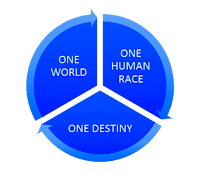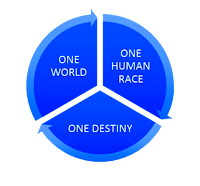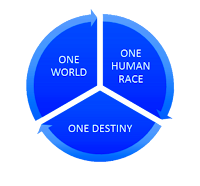A THOUGHT FOR NOW - GROWING OLDER AND KEEPING ONE'S DIGNITY
Caring for older people might not be a bed of roses, but can be rewarding
With people's life expectancy, especially in the western world, increasing significantly, and with nation's healthcare systems coming under immense pressures, growing old can be a very worrying stage of living for millions of people.
Growing old in a non-patriarchal or matriarchal society presents new challenges for older people. This is especially so for those who are in their more senior ages, are disabled, or are losing their intellectual efficiency. As they get older, frailer and more dependent on others, be they relatives or professional carers, older people lose their independence and their confidence.
Although they might be very dissatisfied with the arrangements which have been made for them or how those arrangements are being carried out, older people might show a marked reluctance to challenge what they are unhappy about. This can be due to their fear of retribution against them, at moments of higher vulnerability, such as when they are on their own with their carers, whether they be relatives or professional and/or independent carers.
This fear can be compared to that of a foster child who, notwithstanding his/her unhappiness about aspects of the care or treatment they are receiving from their foster family, chooses not to disclose it to their social worker; fearing that it will be taken up with the foster carers and result in further detriment to them, the foster child.
Loneliness is also another big problem which older people are having to contend with, and something which they might seek to mitigate at undue cost to themselves, sometimes parting with large amount of their money and/or possessions.
What older people probably aspire towards in their more senior stages of life, is to feel safe, feel secure, and to have caring, supportive and reliable people around them. People who do not take them or their views for granted. Older people, even when they do not make it an issue at the time, greatly resent 'being treated like a child.' They might be very infirm and probably slow in understanding some of what is being said to them, but they still have a right and want to be treated with respect and dignity, and not to be taken for granted and 'have things done to them.' Instead of being empowered to make their views and wishes known and taken account of as fully as can be done, and for them to participate, as much as they are able to, in the arrangements which are being made and implemented for them.
It seems to me that many younger people who are involved in the care of older people, especially those who have higher physical dependency needs, but are intellectually capable, might not be aware of, or care sufficiently about the importance older people place on their sense of pride and dignity, and their desire to be treated as adults, and not like dependent children, even if aspects of their care might be comparable to that of a child.
Caring for older people can be frustrating - yes, older people can be very difficult, and, in the light of their ages, are probably unlikely to change attributes which they have spent a life-time acquiring and developing - and exasperating, at times. But that is the challenge which anybody who takes on the caring task has to contend with, and, yes, will need the support of others to help them with.
If you have to care for an older person, and is not already doing so, try to empathise with them and provide the best care you can, all things, including time, cost and other demands on you, being considered. Also be guided by adhering to the principle of satisfying yourself that, if you were in that person's position, you would be satisfied with a similar standard of care.
Society caring for its older people is, like caring for its sick and promoting people's health, a very resource-intensive challenge, and one which will probably always difficult to meet.
Endeavour to enjoy your living as much as possible, each day, and to bring whatever happiness you can for those who depend and/or rely on you and what you do.
Sometime things might not be as they appear, including our perceptions of less abled older people's views about their care.








Comments